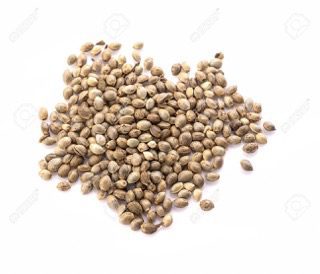

If given in the recommended amount, hemp seeds are safe for dogs and provide essential fats, protein, and amino acids. However, dogs on anticoagulant drugs should avoid them as they can cause adverse effects.
Hemp seeds are a natural source of omega-3 and omega-6 fatty acids that promote skin and coat health, hip and joint health, cardiovascular function, immune system response, and cellular health. They also contain vitamin E, healthy minerals, and are beneficial for dogs with allergies, mobility issues, digestive problems, skin issues, and weight management. Hemp hearts are easier to digest for dogs.
Hemp seeds are safe for dogs as long as they are consumed in moderation. Dogs on anticoagulant drugs should avoid them. Overconsumption can cause an upset stomach, vomiting, and diarrhea.
The recommended serving size for dogs is 1/2 – 1 teaspoon of hemp seeds daily, depending on their size.
Hemp seeds, also known as hemp hearts, are a type of seed that comes from the cannabis sativa plant. Although it comes from the same plant as marijuana, hemp seeds do not contain the psychoactive compound that causes the "high". Hemp seeds are originally from Central Asia and have been used for centuries in traditional medicine. Today, they are commonly used in human diets as a superfood. For dogs, hemp seeds can provide many benefits such as promoting skin and coat health, hip and joint health, healthy immune system response, and weight management. However, dogs who are on anticoagulant drugs should avoid them. The serving size for dogs is 1/2 - 1 teaspoon per day, depending on their size. Hemp seeds are easily affordable and accessible. If your dog enjoys a crunchy treat, sprinkle a few hemp seeds on top of their food or mix it into some homemade treats. Alternatively, you could try using chia seeds or flax seeds as a replacement. Have you ever tried feeding your dog hemp seeds? How did they react to it? Remember to always consult with your veterinarian before introducing any new food to your pet's diet.